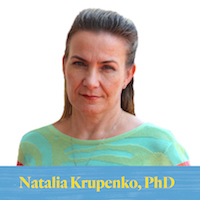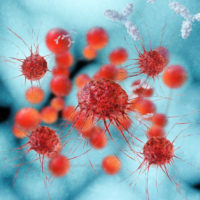natalia_krupenko@unc.edu
704-250-5054
Natalia Krupenko, PhD
Associate Professor of Nutrition
Natalia Krupenko, PhD, Promoted to Associate Professor of Nutrition
Natalia Krupenko, PhD, has been promoted to the rank of Associate Professor in the Department of Nutrition at the University of North Carolina at Chapel Hill. Nutrition Research Institute (NRI)...
September Faculty Focus: Natalia Krupenko, PhD
Bold Questions, Breakthrough Answers For some, it would be difficult to leave the idyllic coastal city of Charleston, South Carolina behind for small town life in Kannapolis, North Carolina. That...
Starving Cells May Lead to New Cancer Treatments
November 20, 2018 – Nutrient availability regulates cell metabolism, growth, and survival. When nutrients are in short supply, cells can pause their growth or even eliminate themselves through a process known as programmed cell death, thereby protecting the health of the organism as a whole. If nutrient deprivation happens at certain critical periods, such as during the rapid growth of the embryonic brain, severe developmental consequences can arise (this is why proper maternal nutrition is so important). In contrast, harnessing the innate ability of cells to enter programmed cell death is an important strategy in cancer treatment.
Pregnancy, Drinking and Diet: Consider "Whole Health" When Pregnant
February 18, 2016 • Scientists at the UNC Chapel Hill Nutrition Research Institute are developing a “whole health” message for pregnant mothers emphasizing evidence-based, nutritional research that empowers them to make their own decisions on everything from drinking to dietary choices.





